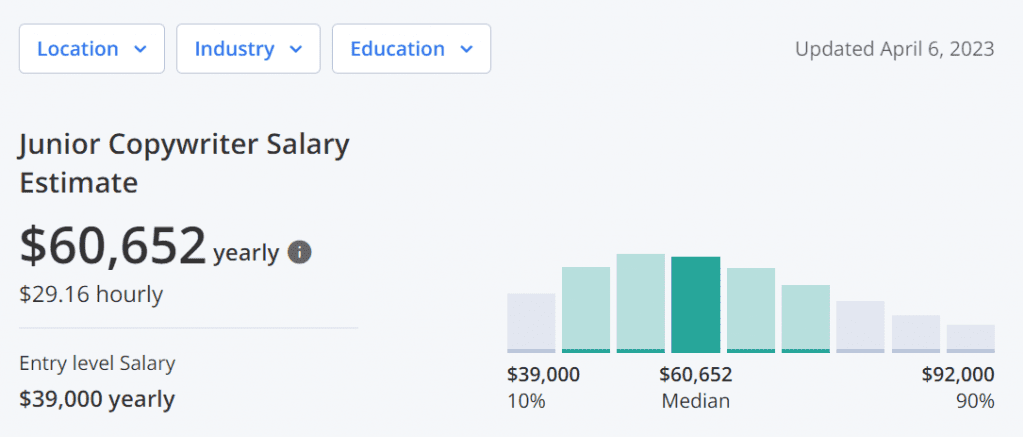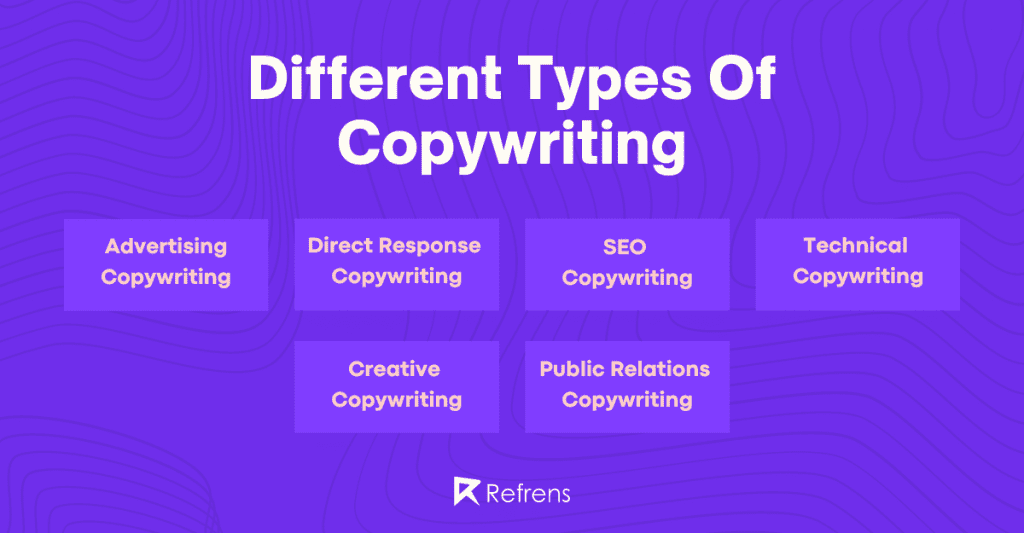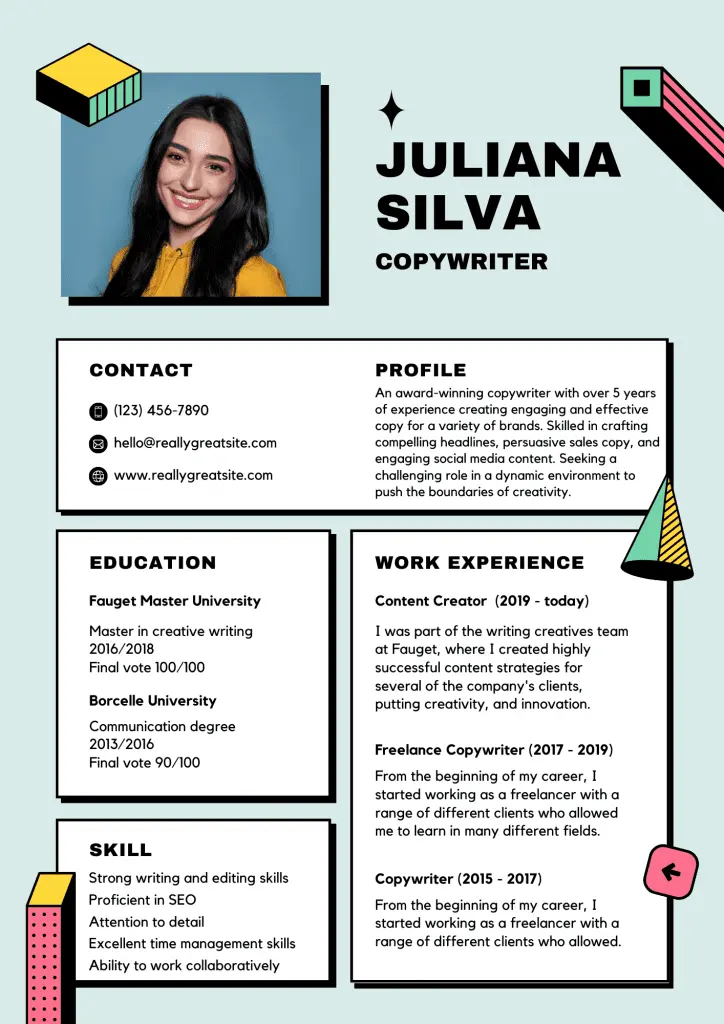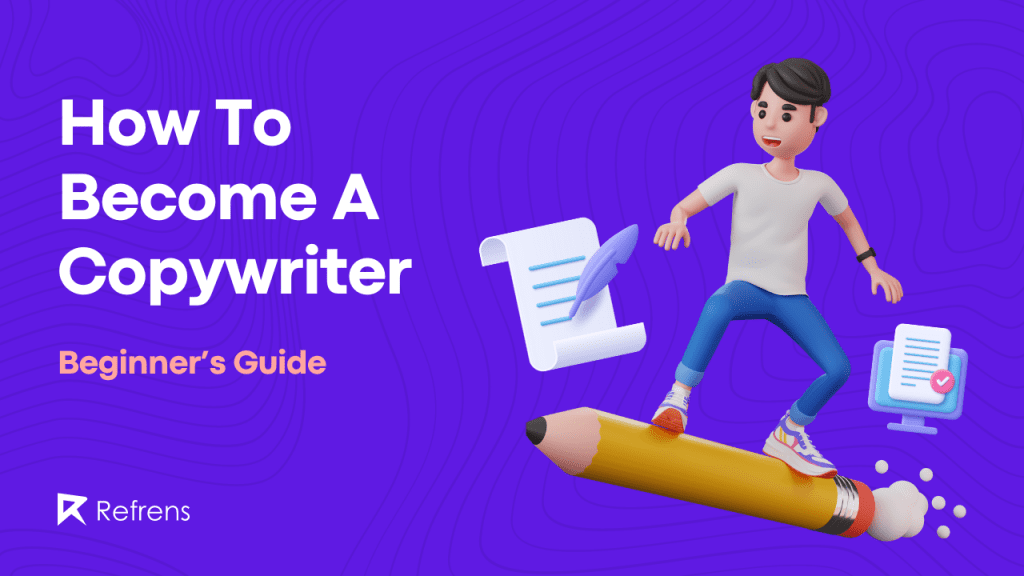Hey there, fellow wordsmiths! Do you like stringing words together and making them dance to your tune? Well, then you might just have what it takes to become a copywriter!
Copywriting is a craft that’s all about using your words to make people sit up and take notice. Whether you’re selling a product, promoting a service, or just trying to get people excited about something, copywriting is the art of making it happen.
But if you’re a newbie to the world of copywriting, it can be a bit daunting to figure out where to start. Don’t worry, we’ve got you covered!
In this blog, we’ll give you the inside scoop on everything you need to know to become a copywriting superstar.
We’ll take you through the basics of copywriting, show you the skills you need to develop, and give you the lowdown on all the tools and resources you can use to hone your craft.
So whether you’re a fresh-faced grad or a seasoned pro looking for a change, buckle up and get ready to dive into the wonderful world of copywriting!
What Is Copywriting?
Copywriting is the art and science of writing words that persuade people to take action. It’s the type of writing you see in advertisements, product descriptions, social media posts, emails, and websites.
The goal of copywriting is to grab the reader’s attention, keep them engaged, and motivate them to buy a product, sign up for a service, or take some other action. The language used in copywriting is simple, clear, and easy to understand so that anyone can get the message.
Good copywriting is all about understanding the audience you’re writing for, knowing what they want, and crafting a message that resonates with them. It’s about knowing how to use persuasive language, storytelling, and psychology to create an emotional connection with your reader.
Moreover, it’s an essential part of marketing and advertising, and it’s a skill that’s in high demand. If you have a talent for writing and a passion for persuasion, copywriting might be the perfect career for you.
Examples Of Powerful Copywriting That Can Skyrocket Your Business
- Lagao, Magar Pyaar Se – Durex
This tagline, which translates to “Use it, but with love,” has been used by Durex in India since the early 2000s. It’s a great example of how to use humor and relatable language to promote safe sex.
- Daag Acche Hain – Surf Excel
It’s a great example of how to use a counterintuitive message to create a memorable brand identity.
- Just Do It – Nike
This simple slogan has become synonymous with the Nike brand and is recognized around the world. It’s an example of how a short, catchy phrase can become a powerful marketing tool.
- Kuchh Meetha Ho Jaye – Cadbury
This iconic tagline has been used by Cadbury in India since the 1990s. It’s a great example of how to create a strong emotional association with a product.
Fascinating Facts & Stats You Can’t Ignore
- Revenue generated:
According to Statista, the global content marketing industry was valued at 42 billion U.S. dollars in 2019 and is expected to reach 107.5 billion U.S. dollars by 2027.
- Salary figures:
According to Glassdoor, the average base salary for a copywriter in India is around 4-6 lakhs per annum, while senior copywriters can earn up to 12-15 lakhs per annum. However, the salary can vary depending on the industry, location, and experience level of the copywriter.
- Demand for copywriters in the near future:
As more and more businesses move online, the demand for skilled copywriters is likely to increase. According to the Bureau of Labor Statistics, employment of writers and authors in the United States is projected to grow 8 percent from 2016 to 2026, which is about as fast as the average for all occupations.
What Does A Copywriter Do?
Basically, a copywriter is like a wordsmith, a word wizard, or a word ninja, who uses their skills to make your product or service look dope as hell. They’re the ones who come up with cool taglines, witty one-liners, and catchy slogans that make you wanna buy stuff you didn’t even know you needed.
Think of it like this: you’re at a bar, and there are a bunch of guys trying to hit on a girl. But you, my friend, are the copywriter. You come in with the smoothest pickup line ever, and BOOM! She’s all over you like hot sauce on chicken wings.
That’s basically what a copywriter does for a brand. They come up with the lines that make the brand stand out from the competition and grab the attention of potential customers. They also make sure the brand’s personality shines through in everything they say, whether it’s on a website, social media, or a billboard.
But it’s not just about being cool and funny. A copywriter has to do their research, know their target audience, and understand the brand’s values and goals. It’s like being a detective, but instead of solving crimes, you’re solving marketing problems.
So, there you have it. A copywriter makes your brand sound like a rockstar and helps you stand out from the crowd.
Average Salary Of A Junior Copywriter

What Is The Career Path Of Copywriter?
The career path of a copywriter can be as exciting as a rollercoaster ride or as dull as a lecture on accounting. However, a typical path would involve starting as a junior copywriter and working on small projects under the guidance of a senior copywriter or creative director.
After gaining experience in copywriting you would become a senior copywriter, working on larger and more complex projects. This may involve mentoring junior copywriters and overseeing the work of others.
From senior copywriter, you may aspire to become a creative director, responsible for overseeing the entire creative process, from concept development to execution. Alternatively, you may also choose to become freelance copywriter, working on a project-by-project basis for various clients.
Regardless of the path chosen, a successful copywriting career requires continuous learning, staying up-to-date with industry trends, and honing one’s writing skills. It’s a challenging and rewarding career that requires both creativity and strategic thinking.
Read more about the top AI writing tools.
What Skills Are Needed To Become A Copywriter?

Becoming a copywriter is more than just being able to string words together. It takes a specific set of skills and a certain attitude to excel in this field.
1. Writing Skills
This one is obvious. You gotta be able to write like a pro. Whether it’s a tagline, a social media post, or a long-form article, you gotta be able to craft words that capture attention and persuade people to take action.
2. Creativity
Being a copywriter is all about coming up with fresh ideas and unique angles. You gotta think outside the box, be willing to take risks, and not be afraid to fail. Creativity is the key to standing out in a sea of boring-ass content.
3. Attention to Detail
In the world of copywriting, every word matters. You gotta have an eye for detail and be able to spot mistakes like a hawk. One spelling error or misplaced comma can ruin an entire piece of content.
4. Marketing Knowledge
To be a copywriter, you gotta understand the world of marketing. You gotta know your target audience, understand their pain points, and be able to craft messages that resonate with them. It’s all about making the sale, baby.
5. Adaptability
The world of copywriting is constantly changing. You gotta be able to adapt to new platforms, new trends, and new technologies. You gotta be a chameleon, able to change your writing style to fit the needs of each project.
6. Collaboration
Being a copywriter isn’t a one-person show. You’ll often be working with designers, marketers, and clients. You gotta be able to communicate your ideas clearly, take feedback like a champ, and work together to create something amazing.
So if you have a passion for writing, a creative mind, and the ability to work well under pressure, copywriting might just be the career for you.
Check out the soft skills you need to develop as a freelancer.
How To Practice Copywriting By Yourself?
One effective way to improve your copywriting skills is to focus on the power of words. Certain words have a magical effect on the human mind and can instantly grab a reader’s attention.
For example, words like “free,” “limited time,” and “exclusive offer” can make a reader sit up and take notice.
Another trick is to use the power of storytelling. People love stories, and a well-crafted story can make your copy come alive. Consider starting with an attention-grabbing hook, then weave a story that connects with the reader’s emotions. By the end of the story, the reader should be itching to know more about your product or service.
Another technique is to use persuasive language. This involves using words and phrases that make the reader feel like they need your product or service. If you need help and support with sharpening up your writing, you could use a free tool like a passive to active voice converter which can save a lot of time when editing.
For example, instead of simply listing the features of your product, focus on the benefits it provides to the reader. Use phrases like “You’ll save time and money” or “Imagine how much easier your life would be with this product.”
Finally, don’t forget about the importance of a strong call-to-action (CTA). This is the part of your copy where you tell the reader what action you want them to take. Use clear and compelling language that leaves no doubt in the reader’s mind about what they need to do next.
Remember, the key to becoming a successful copywriter is to practice, practice, practice. By experimenting with different words, styles, and techniques, you can discover what works best for your target audience and hone your craft. So, get out there and start slinging some words like a pro!
Books You Should Read
The Copywriter’s Handbook by Robert BlyOgilvy on Advertising by David Ogilvy
The Elements of Copywriting by Gary Blake and Robert W. Bly
Copywriting Examples To Captivate Your Audience
- Headline: “Get the perfect summer body in just 30 days!”
- Hook: “Get the perfect summer body”
- Timeframe: “In just 30 days”
- Body copy: “Our shampoo has 2X more moisturizing power than the leading brand.”
- USP: “2X more moisturizing power”
- Comparison: “than the leading brand”
- Call-to-Action: “Sign up now for our exclusive offer!”
- Action: “Sign up”
- Urgency: “Now”
- Benefit: “for our exclusive offer”
- Tagline: “The happiest place on earth”
- Emotional benefit: “happiest”
- Positioning: “place on earth”
- Product Description: “Our new phone has a sleek design and advanced features for the ultimate user experience.”
- Features: “sleek design” and “advanced features”
- Benefit: “ultimate user experience”
Hoping this anatomy of sentences helps you a bit more on how copywriting works and helps you craft effective sentences.
Iconic Copywriting Examples From Top Brands
Amul – “Utterly Butterly Delicious” – Amul’s long-running tagline is a great example of alliteration, which is the repetition of the same sound at the beginning of several words in a phrase. The tagline is catchy and easy to remember, helping to establish brand recognition and recall.
Fevicol – “Fevicol ka jod hai, tootega nahi” – Fevicol’s tagline has become a part of popular culture in India. The line cleverly emphasizes the strength of the product’s adhesive qualities, while also being memorable and entertaining.
Creative Ways To Practice The Art Of Copywriting
1. Rewrite Existing Ads
Take a look at ads from your favorite brands or companies and rewrite them with your own spin. Try to come up with a new angle or tone that sets your version apart from the original.
Example: If you’re a fan of the Cadbury Dairy Milk ad featuring the “Real Taste of Life” slogan, you could try rewriting it with a new tagline like “Experience Life’s Sweetest Moments” or “Indulge in Pure Chocolate Bliss.”
2. Write Product Descriptions
Pick a random product and write a compelling product description that captures its unique features and benefits. This will help you practice writing persuasive copy that encourages readers to take action.
Example: If you choose a pair of running shoes, you could write a product description that highlights the shoes’ advanced cushioning, breathable mesh upper, and durable rubber outsole, while emphasizing the benefits of comfort, support, and performance.
3. Create Social Media Posts
Social media is a great platform for practicing copywriting skills because it requires brevity and creativity. Try crafting catchy headlines or captions that capture attention and inspire engagement.
Example: If you’re promoting a local coffee shop, you could write a social media post with a clever pun like “Start your day the latte way at [coffee shop name] – it’s brew-tiful!”
4. Write Headlines
Headlines are critical in grabbing attention and enticing readers to read more. Try writing headlines for news articles, blog posts, or even your own personal projects.
Example: If you’re writing a blog post about the benefits of meditation, you could craft a headline like “10 Surprising Ways Meditation Can Change Your Life” or “Find Your Zen: Why Meditation is the Key to Inner Peace.”
5. Practice Storytelling
Storytelling is a powerful tool in copywriting, as it helps to create emotional connections with readers. Try writing short stories or anecdotes that convey a brand’s values or message.
Example: If you’re writing for a sustainable fashion brand, you could create a short story about a woman who switches to eco-friendly clothing and feels empowered to make a positive impact on the world.
Remember, the more you practice, the better you’ll get at copywriting. So don’t be afraid to experiment with different styles, tones, and formats to find what works best for you.
Do I Need A Degree To Become A Copywriter?
Copywriting is not rocket science, but neither is it as easy as baking a cake (unless it’s a really complicated cake). The short answer to the question is no, you don’t necessarily need a degree to become a copywriter.
To be a great copywriter, you need skills, knowledge, and a deep understanding of human psychology. You need to know what makes people tick, what makes them buy, and what makes them feel all warm and fuzzy inside.
Now, don’t get us wrong, a degree can be helpful, like a GPS in a new city. It can teach you the basics, like grammar, syntax, and how to use a semicolon without looking like a fool. But it’s not the only way to learn. You can also learn by reading books, attending workshops, or just practicing on your own.
In fact, some of the greatest copywriters in history never had a degree, like David Ogilvy, who dropped out of college and went on to found one of the most successful ad agencies in the world. Or Gary Halbert, who famously said, “If you want to be a copywriter, forget about college. College teaches you to write in a way that is completely opposite of what works in the real world.”
So, to sum it up, you don’t need a degree to become a copywriter, but you do need to be a lifelong learner, have a hunger for knowledge, and be willing to put in the work like a champ. As they say, practice makes perfect, and the more you practice, the better you’ll get.
How Long Does It Take To Become A Professional Copywriter?
Becoming a successful copywriter takes time and dedication. It’s not just about having a degree or certificate, but a passion for writing and storytelling. Some may pick up the basics in a few months, while others may take longer.
But it’s a lifelong learning process as copywriting evolves with new trends and technologies. On average, it takes about a year or two to gain a good grip on copywriting, building a portfolio, making contacts, and landing jobs.
To speed up the journey, consider taking courses, attending workshops, networking, and practicing to refine your skills.
Remember, practice makes perfect.
Is Copywriting Different From Other Forms Of Writing?
Copywriting is different from creative or academic writing. While they may focus on storytelling or presenting information, copywriting is all about persuasion. The words and phrases copywriters craft are meant to persuade people to take action, like buying a product or supporting a cause.
So, copywriting is writing with a purpose, and the measure of its success is how well it achieves that purpose. Good writing skills are necessary, but understanding marketing and psychology is crucial. To make messages that resonate with their target audience, copywriters need to understand them first.
Different Types Of Copywriting
There are several types of copywriting, each with its own unique style and purpose. Let me explain a few of them with examples:
1. Advertising Copywriting
This is used to promote products or services through various forms of advertising, including print, television, radio, and digital media. Example: Nike’s “Just Do It” campaign.
2. Direct Response Copywriting
This type of copywriting is focused on getting the reader to take action, such as making a purchase, subscribing to a service, or signing up for a newsletter. Example: “Call now to get your free trial!”
3. SEO Copywriting
It’s designed to rank higher in search engines, using specific keywords and phrases. Example: “Looking for the best pizza in town? Come to Joe’s Pizza!”
4. Technical Copywriting
It’s used to explain complex or technical subjects to a non-technical audience. Example: “The Ultimate Guide to Cryptocurrency.”
5. Creative Copywriting
This type of copywriting involves using a more imaginative and artistic approach to grab the reader’s attention. Example: “What’s in Your Wallet?” campaign by Capital One.
6. Public Relations (PR) Copywriting
PR copywriting is used to create positive publicity for a brand or company. Example: “Just do it” campaign from Nike.
These are just a few examples of the different types of copywriting. As you can see, each type of copywriting requires a unique set of skills and techniques to be effective.
Check out the ultimate guide to becoming a freelance content writer.
Resume for a Kickass Copywriter
- Professional Summary: A one-sentence summary of your skills, experience, and unique selling points.
- Relevant Experience: A list of your past copywriting jobs or internships, with a brief description of your duties and accomplishments.
- Skills: A bullet-point list of your key skills, such as writing, editing, research, and project management.
- Education: A brief summary of your educational qualifications, including any relevant degrees or certifications.
- Portfolio: A link to your online portfolio or a few samples of your best work.
- Awards and Honors: Any relevant awards or honors you’ve received, such as writing competitions or scholarships.
Pro Tip: Keep it short and sweet, and use action verbs to describe your accomplishments. Don’t be afraid to show some personality, but keep it professional.
Check out how to put your freelance work on resume.
Resume Template For Copywriting

How To Get Your First Client As A Copywriter?
Congratulations on taking the first step toward building your career as a copywriter! Landing your first client can seem daunting, but don’t worry, with a little bit of hustle and some savvy marketing skills, you’ll be on your way to success in no time. Here are some tips to help you secure that first client:
1. Network, Network, Network
Join industry-related groups on social media, attend marketing events, and connect with other professionals in your field. Building a strong network can help you land that first client through referrals or word-of-mouth recommendations.
2. Offer Your Services For Free
Yes, you heard that right. Consider offering your services to a non-profit organization or a friend’s business in exchange for a testimonial or a referral using referral software. This can help you build up your portfolio and gain valuable experience.
3. Create A Killer Portfolio
Your portfolio is your calling card as a copywriter. Be sure to showcase your best work, including a variety of formats and industries. Your portfolio should demonstrate your range, creativity, and ability to write compelling copy that drives results.
Check out the most important elements for your portfolio website.
4. Pitch Your Services To Local Businesses
Identify small businesses in your area that could benefit from your copywriting services. Reach out to them with a personalized pitch that highlights how your services can help them grow their business.
Remember, landing your first client takes time, effort, and persistence. Keep honing your craft, building your portfolio, and marketing your services, and soon enough, clients will be knocking down your door. Good luck!
Conclusion
Congratulations, you’ve made it to the end of this beginner’s guide on how to become a copywriter! By now, you should have a good understanding of the skills, types of copywriting, and strategies needed to break into this exciting field.
But don’t let the journey end here! Remember, the key to becoming a successful copywriter is practice, persistence, and a willingness to continuously learn and adapt to the ever-evolving landscape of the industry.
So, what are you waiting for? Start practicing your copywriting skills, create a portfolio, and reach out to potential clients or employers. Whether you choose to work for an agency or go freelance, the opportunities are endless.
Now, go forth and unleash your creativity! Who knows, you might just be the next legendary copywriter to shake up the industry.
Read more: How to Write Content That Gets Leads & Sign-Ups for SaaS Companies?

















